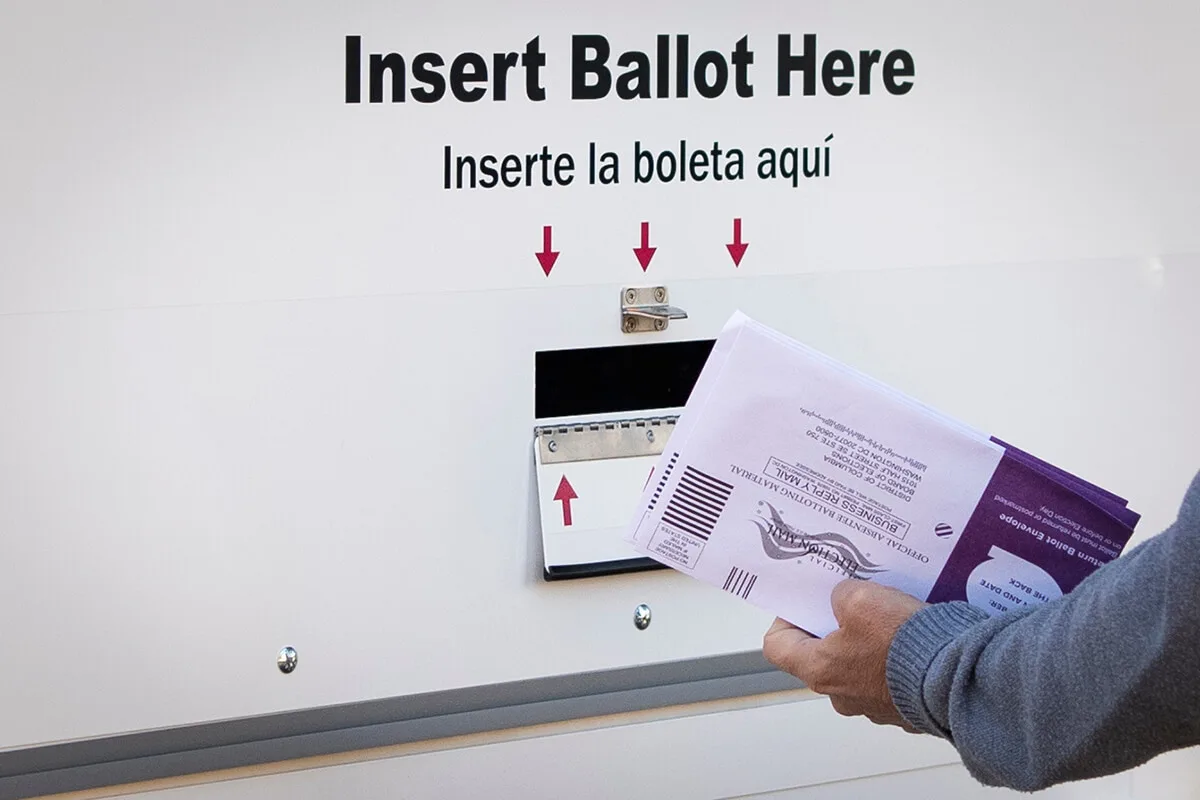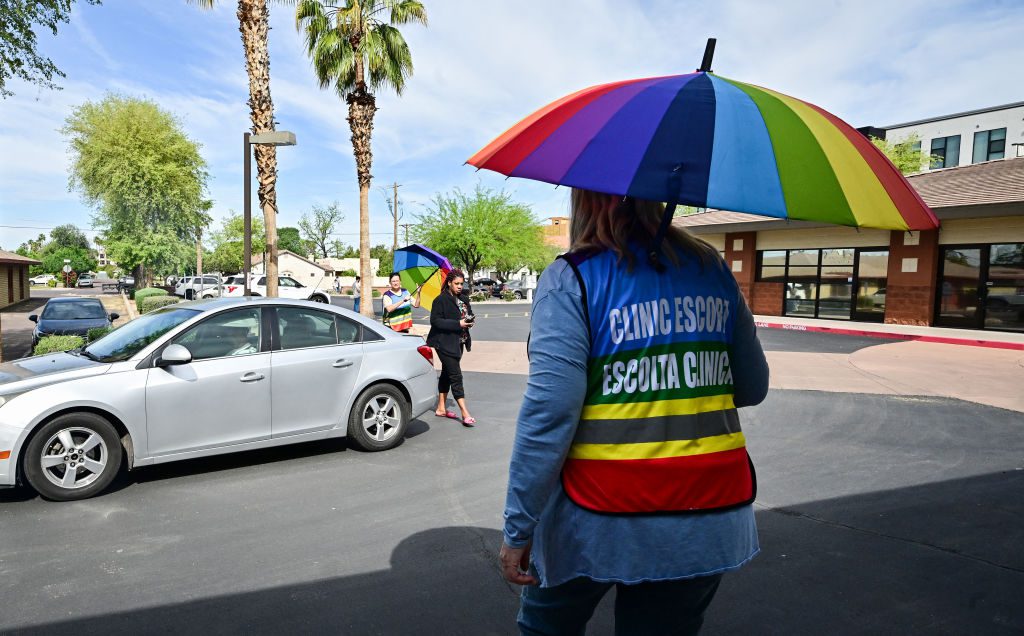
Some rulings may not come until after the election.
While the bulk of Arizona’s election system remains the same this year, some potential changes brought on by the pandemic are up in the air with the courts.
Here are those changes and where they stand:
Ballot collecting
Arizona passed a Republican-backed law in 2016 that outlawed “ballot harvesting,” making it illegal for anyone but a family or household member, caretaker, mail carrier or election official to collect and submit another person’s completed ballot.
But earlier this year, the 9th Circuit Court of Appeals ruled the law racially discriminatory.
Democratic Secretary of State Katie Hobbs defended the ruling that she said counters what one expert called “a long history of race-based discrimination against American Indian, Hispanic and African American citizens.” That discriminatory behavior has continued in recent years, her filing argued.
Republicans, however, argued the law is a “commonsense means of protecting the secret ballot” and pushed the ruling up to the Supreme Court, which has agreed to hear their challenge.
But it’s likely the law will stay in place as is for this election—the high court probably won’t get to hear the case until December, and the earlier ruling has been put on hold until then.
Out-of-precinct voting
Another Arizona law is also heading to the Supreme Court.
The legislation states ballots returned to incorrect precincts should be entirely thrown out. This is a harsher rule compared to other states that allow presidential, Senate, and other relevant choices to still be counted, while only votes for local races outside of the area would be thrown out.
The 9th Circuit Court of Appeals also ruled this law a violation of the Voting Rights Act and disproportionately affecting minority voters.
But the law stands for now, as Arizona Attorney General Brnovich was able to put the challenge on pause until the Supreme Court gets to it—also likely not until December.
But voters have more flexibility for this general election, anyway. Due to the pandemic, many counties are offering voter centers rather than polling places––meaning voters can cast their ballot at any location in their county that’s convenient rather than being assigned one.
Unsigned ballot curing period extension
Arizona has a five-day “curing period” for early ballots that have signatures that don’t match what the voter has on file. This means voters have up to five business days after an election to work with officials to come in and prove they are the one who cast the ballot.
This year, Hobbs wanted to see that period also extended to include unsigned ballots.
But Brnovich challenged the legality of this move, saying state law specified that ballots must be returned with a signature to be counted.
A federal judge ruled earlier this month that the benefits of extending the period outweighed any challenges it posted and therefore allowed the five-period to stand.
But an appeals court put the decision on hold until it can be reviewed, which may not be until after the election.
The 9th Circuit’s order said Arizona’s use of Election Day as the deadline for voters to add missing signatures was reasonable “to promote its unquestioned interest in administering an orderly election and to facilitate its already burdensome job of collecting, verifying, and counting all of the votes in timely fashion.”
Voter registration deadline extension
After some back-and-forth in the courts, Arizona’s voter registration deadline is Oct. 15.
The original deadline was Oct. 5. That day, a federal judge granted two advocacy groups’ request to extend the deadline to Oct. 23 to allow more time for people affected by the pandemic to sign up.
Both Democratic Hobbs and Republican Brnovich appealed the extension. Hobbs’ filing states she decided to jump in because “the instant appeal and stay requests have still caused significant uncertainty.”
The 9th Circuit Court of Appeals ruled Tuesday that the extension must end but allowed for a two-day grace period, making the new deadline Oct. 15.
Arizona has recorded more than 43,000 new registrations in the week since the deadline was extended.
If the extension remained through Oct. 23 and registrations stayed at their current rate, an estimated total of 65,000 people were expected to register to vote.
Video voting in long-term care centers
Hobbs and fellow Democrat Maricopa County Recorder Adrian Fontes have been advocating for voting by video call as a way for people in long-term care centers to be able to safely vote.
Normally, a bipartisan elections board would visit these centers to help people without a guardian or caretaker cast their ballots. But because of health concerns with COVID-19, some people are prevented from or feel uncomfortable meeting face-to-face.
Republicans have argued this video call workaround violates state law, which says the board must meet in person.
But a judge ruled in early October that voting by video is allowed as long as it’s necessary due to a disability.
It’s up to counties to decide if they want and have the means to implement this structure for the general election.
The Associated Press contributed to this report.
Politics

How to apply for a job in the American Climate Corps
The Biden administration announced its plans to expand its New Deal-style American Climate Corps (ACC) green jobs training program last week. ...


AG Mayes says earliest day Arizona’s 1864 abortion ban can be enforced is June 27
Arizona Attorney General Kris Mayes says the earliest day the state’s 1864 abortion ban can be enforced is June 27. The Arizona Supreme Court on...
Local News



How to apply for a job in the American Climate Corps
The Biden administration announced its plans to expand its New Deal-style American Climate Corps (ACC) green jobs training program last week. ...


Basha’s sisters Gabriella and JJ Garcia share unique bond through sports
Sisters Gabriella and JJ Garcia are outstanding athletes at Basha High in Chandler who share a strong bond of friendship and inspiration. CHANDLER –...





